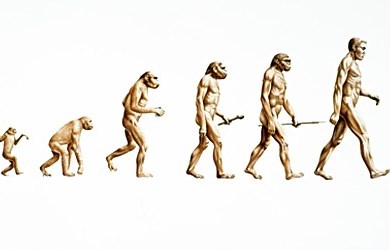Dr. John Morris of the Institute for Creation Research explains that sickle cell anemia, a blood disorder that affords a selective advantage against malarial infection, demonstrates that evolution, unlike Creationism, is fundamentally flawed.
“Evolution says that beneficial mutations have occurred trillions of times, but their best example is the fatal disease,” John Morris said in a radio bulletin today. “The point is, they’re grasping at straws; the Creation story, like we’re told back in Genesis, it’s much more credible.”
Let PBS explain how this case actually proves that evolution occurs:
A gene known as HbS was the center of a medical and evolutionary detective story that began in the middle 1940s in Africa. Doctors noticed that patients who had sickle cell anemia, a serious hereditary blood disease, were more likely to survive malaria, a disease which kills some 1.2 million people every year. What was puzzling was why sickle cell anemia was so prevalent in some African populations.
…
Researchers found that the sickle cell gene is especially prevalent in areas of Africa hard-hit by malaria. In some regions, as much as 40 percent of the population carries at least one HbS gene.
It turns out that, in these areas, HbS carriers have been naturally selected, because the trait confers some resistance to malaria. Their red blood cells, containing some abnormal hemoglobin, tend to sickle when they are infected by the malaria parasite. Those infected cells flow through the spleen, which culls them out because of their sickle shape — and the parasite is eliminated along with them.
Scientists believe the sickle cell gene appeared and disappeared in the population several times, but became permanently established after a particularly vicious form of malaria jumped from animals to humans in Asia, the Middle East, and Africa.
In areas where the sickle cell gene is common, the immunity conferred has become a selective advantage. Unfortunately, it is also a disadvantage because the chances of being born with sickle cell anemia are relatively high.
For parents who each carry the sickle cell trait, the chance that their child will also have the trait — and be immune to malaria — is 50 percent. There is a 25 percent chance that the child will have neither sickle cell anemia nor the trait which enables immunity to malaria. Finally, the chances that their child will have two copies of the gene, and therefore sickle cell anemia, is also 25 percent. This situation is a stark example of genetic compromise, or an evolutionary “trade-off.”








